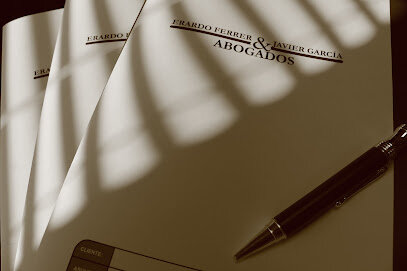Best Faith-Based Law Lawyers in Arrecife
Share your needs with us, get contacted by law firms.
Free. Takes 2 min.
List of the best lawyers in Arrecife, Spain
About Faith-Based Law in Arrecife, Spain
Faith-Based Law in Arrecife, Spain refers to legal matters influenced by or related to religious principles or organizations in the local context. Although Spain is a secular state, it recognizes religious freedom and permits the coexistence of various faiths. In Arrecife, the capital of Lanzarote in the Canary Islands, people from diverse religious backgrounds often engage in legal issues that intersect with their beliefs such as marriage, inheritance, employment, education, and religious property.
Most religious matters are governed by national legislation, but local customs, agreements between religious groups and the government (concordats or cooperation agreements), and municipal regulations can impact how faith-based legal issues are resolved. Understanding these overlapping jurisdictions is critical for navigating Faith-Based Law in the city.
Why You May Need a Lawyer
Individuals and organizations may seek legal advice regarding Faith-Based Law in Arrecife for several reasons. Common situations include:
- Ensuring marriage or divorce complies with both religious and civil laws.
- Dealing with religious discrimination in the workplace or in education.
- Inheritance questions where religious traditions and Spanish civil law differ.
- Establishing or running a religious organization according to legal requirements.
- Securing permits for places of worship or religious events.
- Child custody cases where religious upbringing is in question.
- Upholding the rights and agreements established between specific religious communities and the Spanish government.
A qualified lawyer can explain your rights, help mediate disputes, and represent you in court or in negotiations with authorities.
Local Laws Overview
In Arrecife, as in the rest of Spain, the Spanish Constitution guarantees freedom of religion and equal treatment for all faiths. However, some religious groups have signed cooperation agreements with the Spanish State providing additional rights and obligations, known as acuerdos. Key aspects include:
- Recognition of religious marriages, but civil registration may still be required for full legal effect.
- Provisions allowing religious groups to operate educational institutions and run social services.
- Legal protection against discrimination based on religion in housing, work, and access to public services.
- The right to establish, own, and manage places of worship and religious cemeteries, subject to planning regulations.
- Special regulations for religious holidays, dietary requirements, and attire, particularly in schools and public institutions.
Local authorities in Arrecife may also have regulations regarding land use for religious properties, noise ordinances for public events, and cooperation with religious communities during festivals or public emergencies.
Frequently Asked Questions
What is Faith-Based Law and how is it relevant in Arrecife?
Faith-Based Law covers legal matters that intersect with religious beliefs or practices, affecting things like marriage, education, and rights of religious communities in Arrecife.
Does Spanish law recognize religious marriage ceremonies?
Yes, but for a marriage to have civil effects, it must be registered with the local civil authorities even if performed religiously.
Can religious groups own property in Arrecife?
Yes, religious organizations can own property and manage places of worship, subject to local zoning and municipal regulations.
What rights do religious employees and students have?
They are entitled to reasonable accommodation for religious practices, such as dietary restrictions or wearing religious attire, unless it creates an undue hardship for the employer or institution.
How does inheritance law interact with religious customs?
Spanish inheritance law generally applies regardless of religion. However, families may seek legal advice if religious customs differ from national law, especially in international cases.
Are there specific laws for cemeteries and funeral rites?
Local authorities regulate cemeteries, but arrangements can be made for religious rites and burial according to one's faith, within public health and land use rules.
Is it possible to establish a religious school in Arrecife?
Yes, religious organizations may establish schools if they comply with national education standards and regulations set by the Canary Islands government.
What legal protections exist against religious discrimination?
Spanish law prohibits discrimination on the basis of religion in employment, education, access to goods and services, and public life.
Who mediates disputes involving religious groups?
Disputes can be mediated by civil courts, but some cases may involve religious authorities or committees, especially if agreements (acuerdos) with the government are involved.
Can foreign nationals practice their religion freely in Arrecife?
Yes, all residents and visitors in Arrecife have the right to practice their religion freely, subject to laws ensuring public order and respect for others.
Additional Resources
For more information or assistance regarding Faith-Based Law in Arrecife, the following resources may be helpful:
- Spanish Ministry of Justice - Office of Religious Affairs
- Local Office of the Ayuntamiento de Arrecife (for permits and regulations)
- Federation of Religious Entities - Federação de Entidades Religiosas
- Legal Aid Societies in Lanzarote
- Social services offices providing mediation and anti-discrimination support
Next Steps
If you require legal assistance related to Faith-Based Law in Arrecife, consider the following steps:
- Identify the exact nature of your legal issue. Make notes about the events, people involved, and any relevant documents.
- Seek recommendations for local lawyers with experience in Faith-Based Law or religious matters.
- Schedule a consultation to discuss your rights and potential solutions. Bring all relevant paperwork with you.
- Check if you qualify for free or subsidized legal services through local organizations.
- Throughout the process, ensure your legal representation understands both the local laws and the specific religious context of your situation.
Understanding your rights and obtaining professional legal guidance is essential for resolving Faith-Based Law issues effectively in Arrecife, Spain.
Lawzana helps you find the best lawyers and law firms in Arrecife through a curated and pre-screened list of qualified legal professionals. Our platform offers rankings and detailed profiles of attorneys and law firms, allowing you to compare based on practice areas, including Faith-Based Law, experience, and client feedback.
Each profile includes a description of the firm's areas of practice, client reviews, team members and partners, year of establishment, spoken languages, office locations, contact information, social media presence, and any published articles or resources. Most firms on our platform speak English and are experienced in both local and international legal matters.
Get a quote from top-rated law firms in Arrecife, Spain — quickly, securely, and without unnecessary hassle.
Disclaimer:
The information provided on this page is for general informational purposes only and does not constitute legal advice. While we strive to ensure the accuracy and relevance of the content, legal information may change over time, and interpretations of the law can vary. You should always consult with a qualified legal professional for advice specific to your situation.
We disclaim all liability for actions taken or not taken based on the content of this page. If you believe any information is incorrect or outdated, please contact us, and we will review and update it where appropriate.










